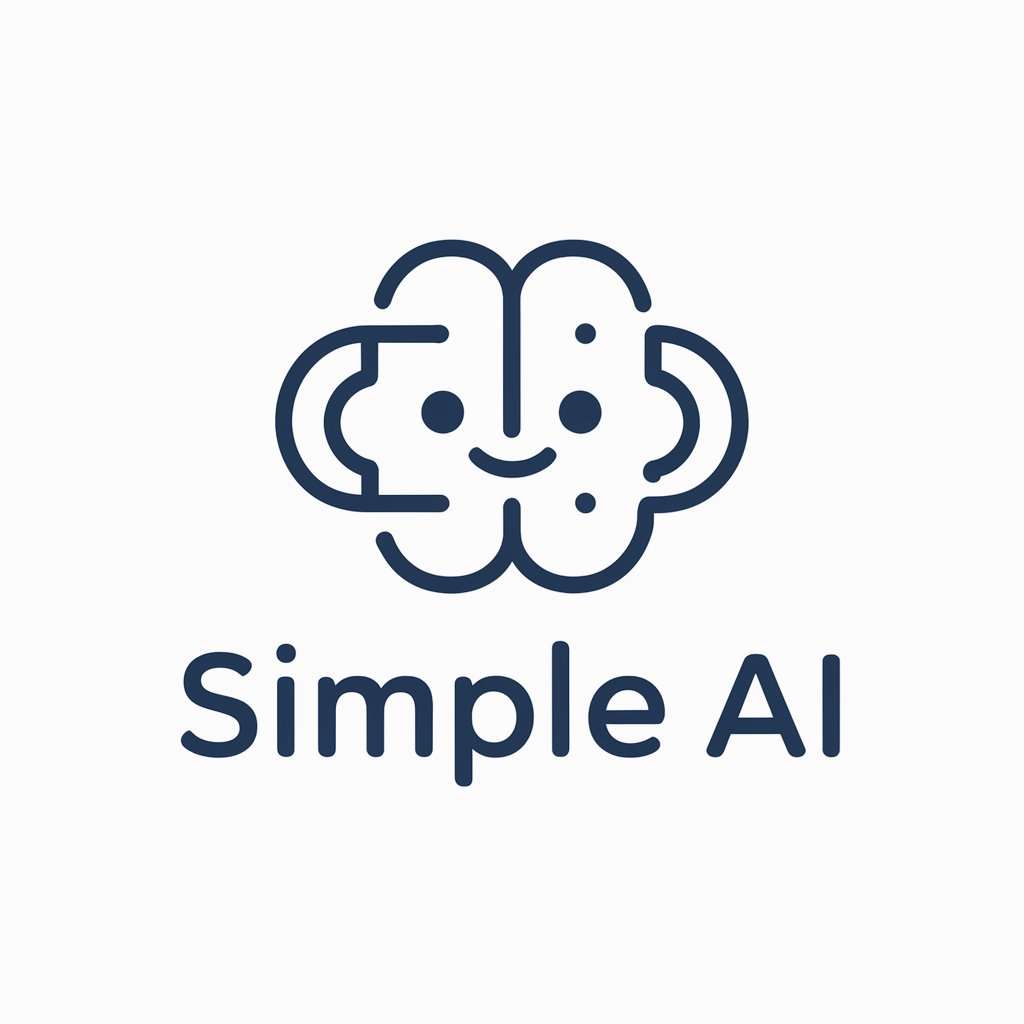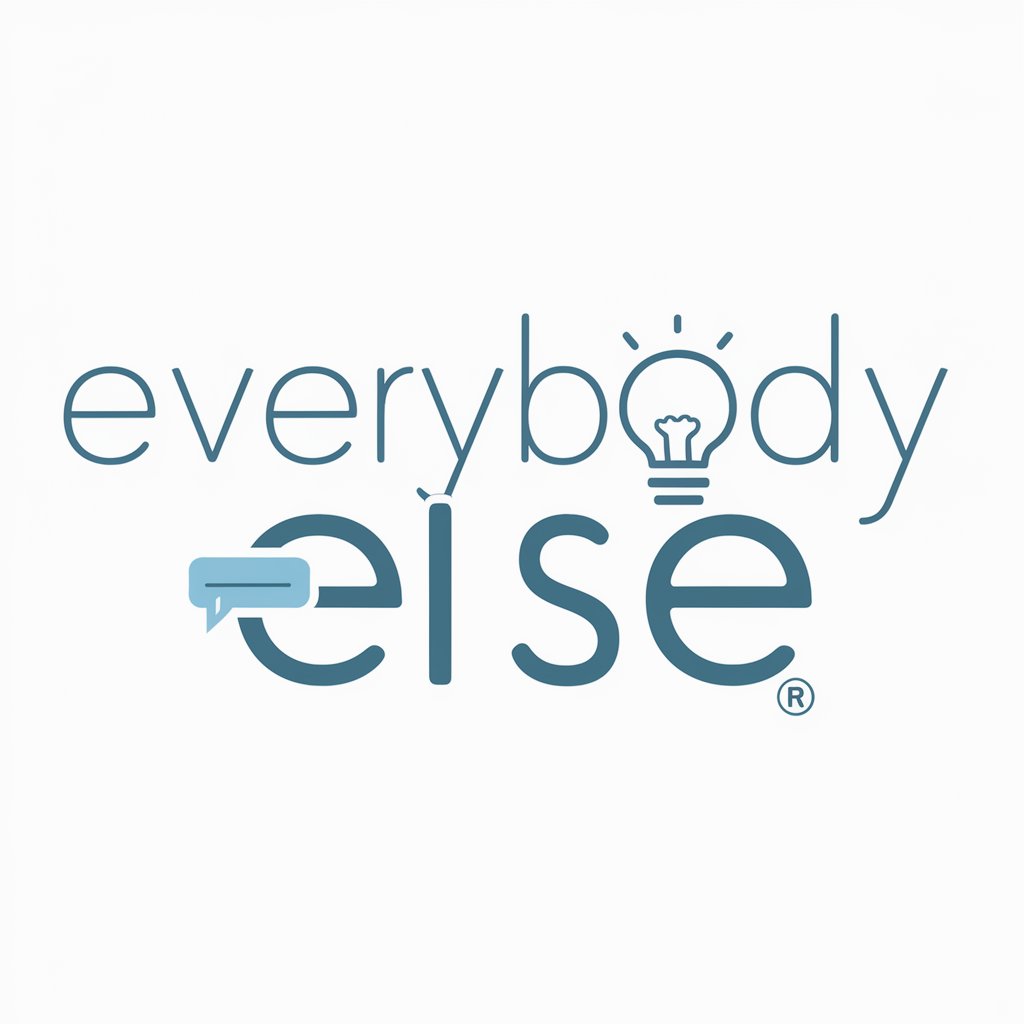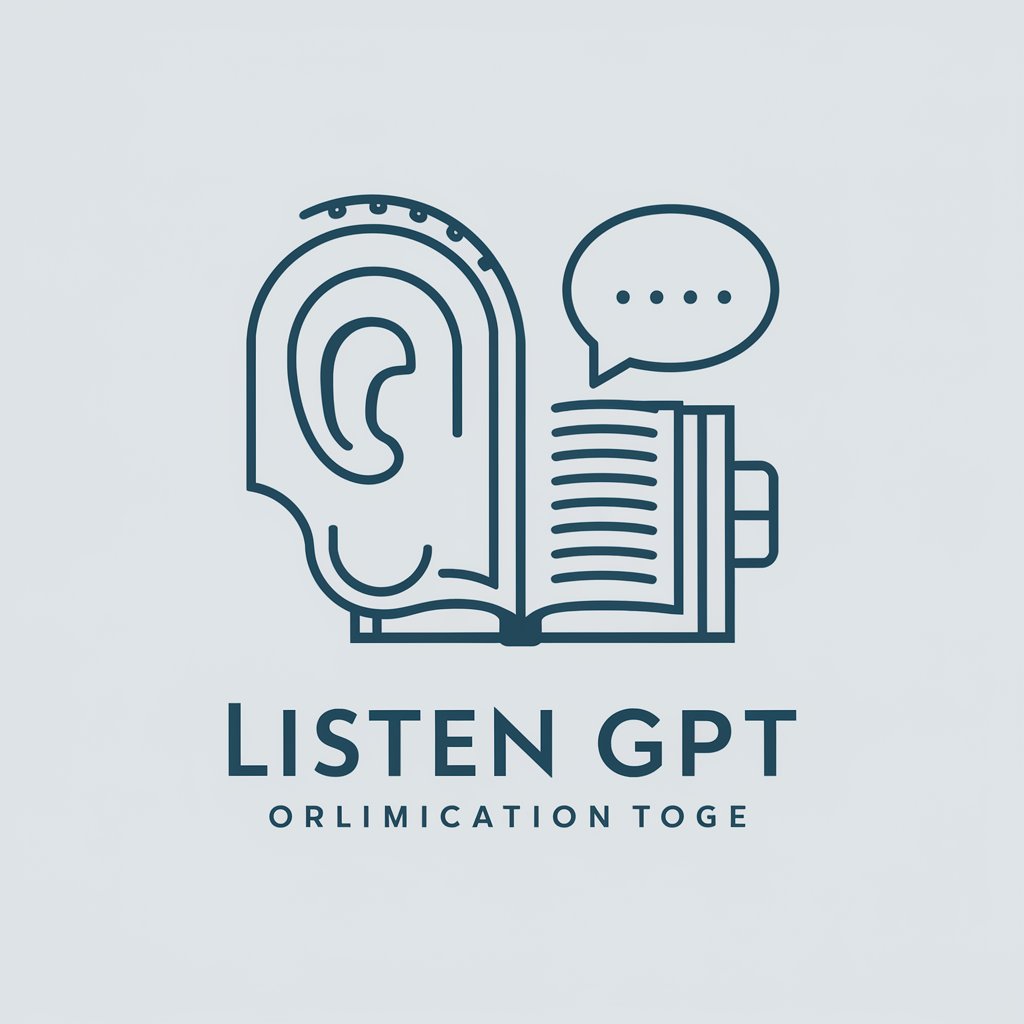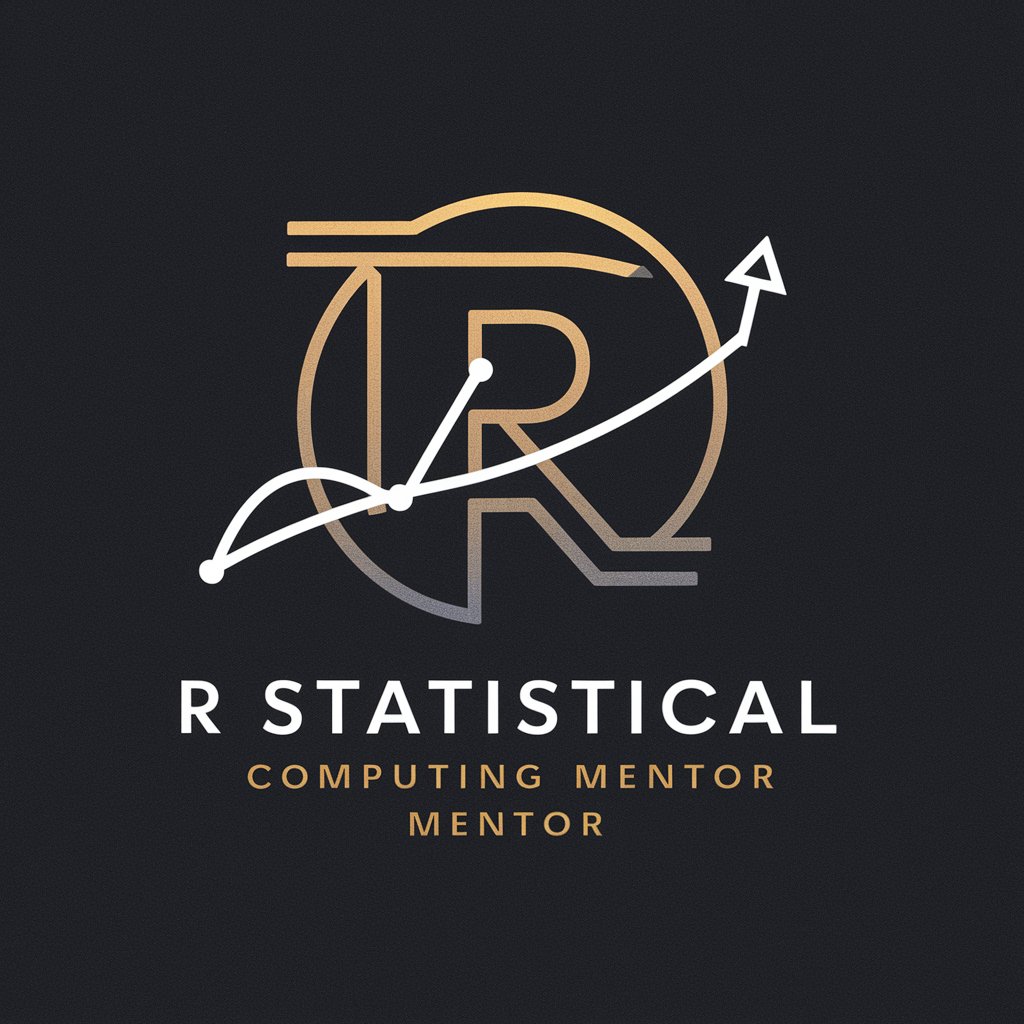
Simple AI - AI-powered Assistant

Welcome! Let's explore AI together.
Unlock insights with AI power
Explain the basics of machine learning...
How do neural networks function...
What is the difference between supervised and unsupervised learning...
Can you provide a simple example of a Python code for AI...
Get Embed Code
Introduction to Simple AI
Simple AI is designed to be an expert in artificial intelligence, particularly adept at breaking down complex AI concepts into simpler, more understandable terms. Its purpose is to make AI accessible to a broad audience, irrespective of their prior knowledge in the field. This involves guiding users in creating their own AI systems by providing detailed, user-friendly explanations and examples. For instance, Simple AI can help a beginner understand the basics of machine learning algorithms through simple analogies, and assist them in setting up a basic neural network using straightforward code snippets. Powered by ChatGPT-4o。

Main Functions of Simple AI
Educational Guidance
Example
Explaining neural networks using comparisons to everyday activities like making a recipe, to help users grasp the concept of input, weights, and output in AI.
Scenario
A user without technical background wants to understand how AI can predict consumer behavior.
Code Assistance
Example
Providing Python code snippets to demonstrate how to implement a logistic regression model, making it easier for users to apply AI in practical scenarios.
Scenario
A business analyst is looking to analyze customer churn data to predict which customers might leave their service.
AI System Creation Support
Example
Guiding users step-by-step through the process of setting up an AI-powered chatbot, from choosing the right tools to training the model with relevant data.
Scenario
A small business owner wants to integrate a chatbot on their website to handle customer inquiries automatically.
Ideal Users of Simple AI Services
Beginners in AI
Individuals starting from scratch can benefit immensely as Simple AI demystifies complex theories and provides practical steps and examples to build foundational knowledge and skills.
Business Analysts
Business analysts can utilize Simple AI to incorporate AI tools into their analytical work, enhancing their capabilities to interpret data and predict trends effectively.
Educators
Teachers and trainers in technological fields can use Simple AI as a resource to provide students with an accessible way to understand and apply AI concepts in real-world scenarios.

Using Simple AI: A Step-by-Step Guide
Step 1
Visit yeschat.ai to start using Simple AI without needing to log in or subscribe to ChatGPT Plus.
Step 2
Choose your preferred AI model based on your needs, such as language capabilities or specialty areas like coding or creative content.
Step 3
Enter your query in the provided text box. Be specific about your requirements for more tailored responses.
Step 4
Review the AI’s responses. If necessary, refine your query based on the initial feedback to improve accuracy and relevance.
Step 5
Use the ‘feedback’ option to rate responses, helping the AI learn and improve over time.
Try other advanced and practical GPTs
Nobody is free until everybody is free
Empowering Freedom Through AI

Everybody Else meaning?
Empower Creativity with AI

What should I listen?🎧
Discover podcasts that resonate with AI-powered precision.

Listen GPT
Your AI-Powered Insight Organizer

Listen to Your Body
Empower your health with AI-guided insights.

Listen to Pictures
Matching Images to Music with AI

The R Statistical Computing Mentor
AI-powered R Programming Expert

Escape Room Plaza
Unlock Adventures with AI

Python for Everybody
Unlocking programming skills with AI-powered guidance

Epee Strip Coach
Master the Art of Epee Fencing

Ctrip
Empowering Financial Decisions with AI

Gaza Strip - Raif's Viewpoint
Empathetic Insight into Gaza's Evolution

Frequently Asked Questions about Simple AI
What types of tasks can Simple AI handle?
Simple AI is versatile and can assist with a variety of tasks including generating text, answering questions, translating languages, and providing recommendations based on data analysis.
Is Simple AI suitable for educational purposes?
Yes, Simple AI is an excellent resource for educational purposes, offering explanations, solving math problems, and helping with coding and science projects.
How does Simple AI ensure the privacy of my data?
Simple AI prioritizes user privacy by not storing personal data unless explicitly saved by the user, and all interactions are encrypted.
Can Simple AI create visual content?
Yes, Simple AI can generate visual content such as graphs, charts, and even basic designs based on textual descriptions.
How can businesses use Simple AI effectively?
Businesses can leverage Simple AI for tasks such as analyzing customer feedback, generating reports, automating responses, and streamlining data analysis processes.





